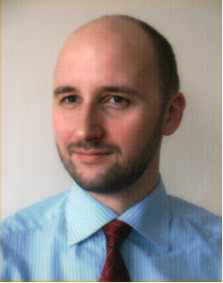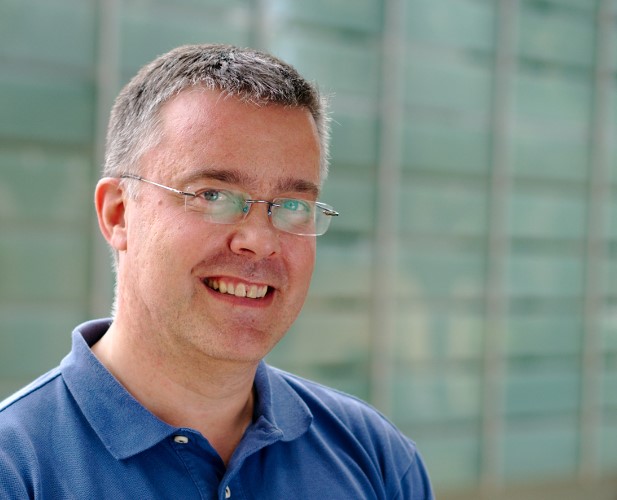Prof. João Gama
Associate Professor at Laboratory of Artificial Intelligence and Decision Support (University of Porto, Porto, Portugal)
João Gama received his Licenciado degree from the Fac. of Engineering of the University of Porto, Portugal. In 2000 he received his Ph.D. degree in Computer Science from the Faculty of Sciences of the same University. He joined the Faculty of Economy where he holds the position of Associate Professor, He is also a senior researcher at LIAAD, a group belonging to INESC Porto. He has worked in projects and authored papers in areas related to machine learning, data streams and adaptive learning systems and is a member of the editorial board of international journals in his area of expertise.
Title
Data Mining for the XXI Century
Abstract
Nowadays, there are applications in which the data are modelled best not as persistent tables, but rather as transient data streams. In this keynote, we discuss the limitations of current machine learning and data mining algorithms. We discuss the fundamental issues in learning in dynamic environments like learning decision models that evolve over time, learning and forgetting, concept drift and change detection. Data streams are characterized by huge amounts of data that introduce new constraints in the design of learning algorithms: limited computational resources in terms of memory, processing time and CPU power.
In this talk, we present some illustrative algorithms designed to taking these constrains into account. We identify the main issues and current challenges that emerge in learning from data streams, and present open research lines for further developments.
Prof. Bogusław Cyganek
(1) Visiting Professor at Wroclaw University of Technology, Wybrzeże Wyspiańskiego 27, 50-370 Wrocław, Poland
(2) Associate Professor at AGH University of Science and Technology, Poland, Al. Mickiewicza 30, 30-059 Kraków, Poland
acyganek@agh.edu.pl

Bogusław Cyganek received his M.Sc. degree in electronics in 1993, and then M.Sc. in computer science in 1996, from the AGH University of Science and Technology, Krakow, Poland. He obtained his Ph.D. degree cum laude in 2001 with a thesis on correlation of stereo images, and D.Sc. degree in 2011 with a thesis on methods and algorithms of object recognition in digital images.
During the recent years dr. Bogusław Cyganek cooperated with many scientific and industrial partners such as Glasgow University Scotland UK, DLR Germany, and Surrey University UK, as well as Nisus Writer, USA, Compression Techniques, USA, Pandora Int., UK, and The Polished Group, Poland. He is an associated professor at the Department of Electronics of the AGH University of Science and Technology, Poland, currently serving as a visiting professor to the Wroclaw Technical University in the ENGINE project. His research interests include computer vision, pattern recognition, as well as development of programmable devices and embedded systems. He is an author or a co-author of over a hundred of conference and journal papers, as well as books with the latest “Object Detection and Recognition in Digital Images: Theory and Practice” published by Wiley in 2013. Dr. Cyganek is a member of the IEEE, IAPR and SPIE.
Title
Tensor Methods in Data Analysis and Pattern Recognition
Abstract
The new approach to pattern classification involves direct account for the multidimensionality of the input data. Classification methods, which have their roots in 1D vector spaces, were recently extended to direct processing of N-D patterns without prior vectorization, where N>1 stands for dimensionality of the input data. Examples are ubiquitous – these are for instance monochrome, color and hyperspectral images, video streams, sensor measurements, market selling data, to name a few. Direct processing and more accurate classification of such patterns started to be possible after a number of seminal achievements in their representation with tensors, as well as development of a number of tensor decomposition algorithms.
This talk will be focused on presentation of the basic ideas, as well as advanced achievements, in the domain of data analysis and pattern recognition with tensor methods. We will present a systematic overview to different tensor decompositions with special stress on their applications in data representation, analysis, as well as pattern recognition with single and ensembles of classifiers. Last but not least, practical aspects, as well as implementation issues, related to data processing with tensors will be presented.
Prof. Richard J. Duro
Full Professor in the Department of Computer Science and head of the Integrated Group for Engineering Research at the University of A Coruña (Spain)

Richard J. Duro received a M.S. degree in Physics from the University of Santiago de Compostela, Spain, in 1989, and a PhD in Physics from the same University in 1992. He is currently a Full Professor in the Department of Computer Science and head of the Integrated Group for Engineering Research at the University of A Coruña. He is a senior member of the IEEE and is currently in the Board of Governors of the International Neural Network Society. His research interests include cognitive autonomous and evolutionary robotics higher order neural network structures and high dimensional signal processing.
Title
Motivation as the driver of developmental cognition in machines
Abstract
Motivation has often been the forgotten area of artificial intelligence and machine cognition. Large efforts have been devoted to the development of perceptual systems, to the instantiation of world modelling strategies, or to the creation of mechanisms that allow learning behaviors or policies. In other words, to producing algorithms that provide ways to determine HOW intelligent systems should do things. However, comparatively much less effort has been spent in providing strategies that allow these systems to determine WHAT they should strive for each instant of time according to their contexts and circumstances.
This talk will address the topic of motivation and its relevance to the creation of really autonomous systems that can easily adapt to dynamic and changing environments in a lifelong manner while surviving and carrying out their assigned tasks. Under this view, motivation is the glue that provides coherence and real autonomy to cognitive machines and as such, it should be one of the central elements of any cognitive architecture. Throughout the presentation we will review the state of the art of this topic and present some recent advances and results in the realm of cognitive and developmental robotics.

